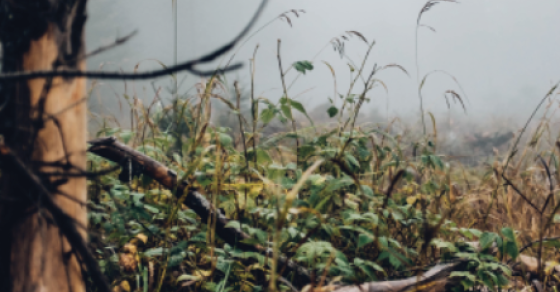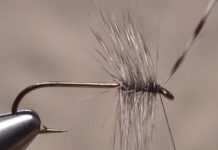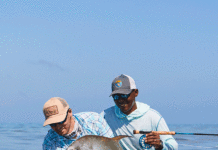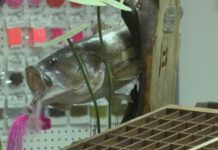I know people who only visit a handful of lakes when they fish, spending all their angling time in only four or five places.
They’ve fished the same lakes for years — decades even — and know them so well they could row to a given spot, anchor, tie on a fly, cast and catch fish while wearing a blindfold.
They always catch fish because they practically know every fish by name. Others hunt the same hillsides year after year after year. They know every rock and stump. They go to the same places at the same times and always seem to find a buck.
How boring.
I’m not saying there isn’t value in learning a lake or a hillside to the point that you can find regular success there. Becoming intimately familiar with the places you visit is usually a prerequisite for success.
But after the knowledge is gained, continuing to put it to regular practice in the same old place becomes routine, dull even.
And, more importantly, sticking firmly to the tried and true doesn’t make you a better hunter or angler. The opposite is true, I think. Those who don’t explore don’t learn. Only those who are willing to take on the challenge of new places will gain a measure of wisdom when it comes to knowing the ways of wild things.
There are probably several reasons people refuse to open themselves to the possibilities offered by new lakes or country — and the biggest is likely the worry they won’t be successful.
It’s a well-founded concern.
Visiting a new lake for the first time can be a daunting experience. Where are the fish? What will it take to coerce them to the fly? Is there even fish here?
Same with hunting. The first cruise through a new valley always raises questions: Are there animals here? In what kind of numbers? Where do they hang out?
It’s understandable, I suppose, the desire people have to cling to locations where the record is proven, the places and methods that will give the best chance at success.
Time in the field can be dreadfully short. Who wants to waste it on empty days? Why venture into unknown territory?
It’s a tough break to make, but worth the effort. The skills picked up while exploring can sharpen the eyes and senses. If nothing else, cruising unproductive country deepens the appreciation for the productive lakes and mountain pockets all who pursue critters cherish like gold.
Every year, I make a point of fishing a couple of places I’ve never fished before. It’s easy to do in our area. There are hundreds of backcountry lakes out there and most of them have fish in them.
Sometimes the lakes I visit turn out to be little jewels, but many times they do not. Sometimes I catch fish, other times I don’t.
And, every few years, I set out to find new hunting country.
Like most who spend time in the outdoors, I spend a lot of time cruising on Google Earth in search of the next honey hole, but the reality is there is nothing like boots on the ground to know whether a place is worth future effort. Google Earth only takes you so far.
Most times, the trips I make to new areas don’t turn up much. I see lots of trees, plenty of rocks and the occasional deer or grouse.
Are the trips wasted? I don’t think so. The process of exploring new areas occasionally turns up places worth visiting again.
But more importantly, the skills put into practice analyzing new country for its potential helps hone the skills, making trips back to my familiar haunts all the more productive.
When you see lots of country, patterns emerge, things like types of feed and places deer or bear consider comfortable country.
Those common “themes” transcend distance and appear everywhere. Only by seeing them time and again can you learn to take advantage of them, even in the places you know best.
I’ve spent several days over the past few weeks in a new area, a part of our region I’ve wanted to explore for the previous bunch of years.
It’s tough country, steep and messy. But it holds promise. There are lots of deer tracks, a bunch of does and even signs of moose. As well, there have been plenty of bears, which has been the object of our pursuit of late.
(On a side note: we’ve not been successful in this bear hunting endeavour; it seems chasing critters like bears is much more difficult with a bow and arrow than I first imagined, but more on that another time.)
This new country has vast potential, as far as I can tell, perhaps even enough to pull me away from my other favourite hillsides, ones that have put meat in my freezer for many years running.
Who knows, maybe it will end up my new favourite country for a while.
A couple more trips and I suspect I’ll know for sure.
Robert Koopmans is an avid angler and hunter who spends as much time as possible in B.C.’s wild places. He also hosts the Hunting & Fishing British Columbia podcast (find it on Apple Podcasts). To share a thought, send an email to info@theoutdoornarrative.com.
Credit: Source link






























